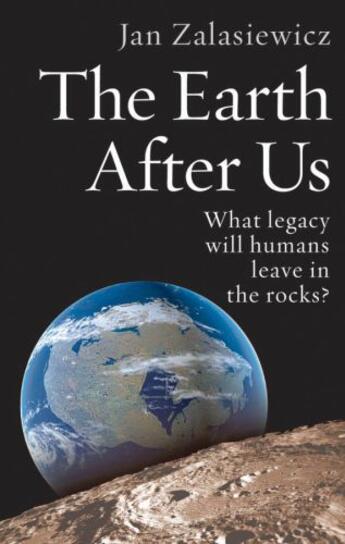-
Nombre de pages : (-)
-
Collection :
(-)
-
Genre :
(-)
-
Thème :
Non attribué
-
Prix littéraire(s) :
(-)
Résumé:
Geologist Jan Zalasiewicz takes the reader one hundred million years into the future, long after the human race became extinct, to explore what will remain of humanity's brief but dramatic sojourn on planet Earth. He tells how geologists in the far future - perhaps an alien species... Voir plus
Geologist Jan Zalasiewicz takes the reader one hundred million years into the future, long after the human race became extinct, to explore what will remain of humanity's brief but dramatic sojourn on planet Earth. He tells how geologists in the far future - perhaps an alien species re-discovering Earth - might piece together the history of the planet, and slowly decipher the fact of humanity's existence, activities, and ultimate extinction from the traces we will leave impressed in the rock strata.
The Earth After Us takes this novel approach to show how geologists unravel the information in the rocks. As the alien scientists start investigating the strata, what story will they tell of us? What kind of fossils will humans leave behind? What will happen to cities, cars, and plastic cups? How thick a layer will the 'human stratum' be? And will it be obvious which species dominated the planet? It reveals a story of an environmental crisis similar in scale to even earlier mass extinction events, yet puzzlingly different: a crisis where extinctions were accompanied by a bizarre global merry-go-round of organisms and by sharp perturbations of climate. The trail leads finally to the bones of the inhabitants of petrified cities that have lain deep underground for many millions of years.
As thought-provoking as it is engaging, this book simultaneously explains both the geological mechanisms that shape our planet, and also offers a perspective on humanity and its actions that may prove to be more objective than any other. For our final legacy, Zalasiewicz argues, will provide the ultimate verdict on our species and on our relationship to planet Earth.
Donner votre avis








